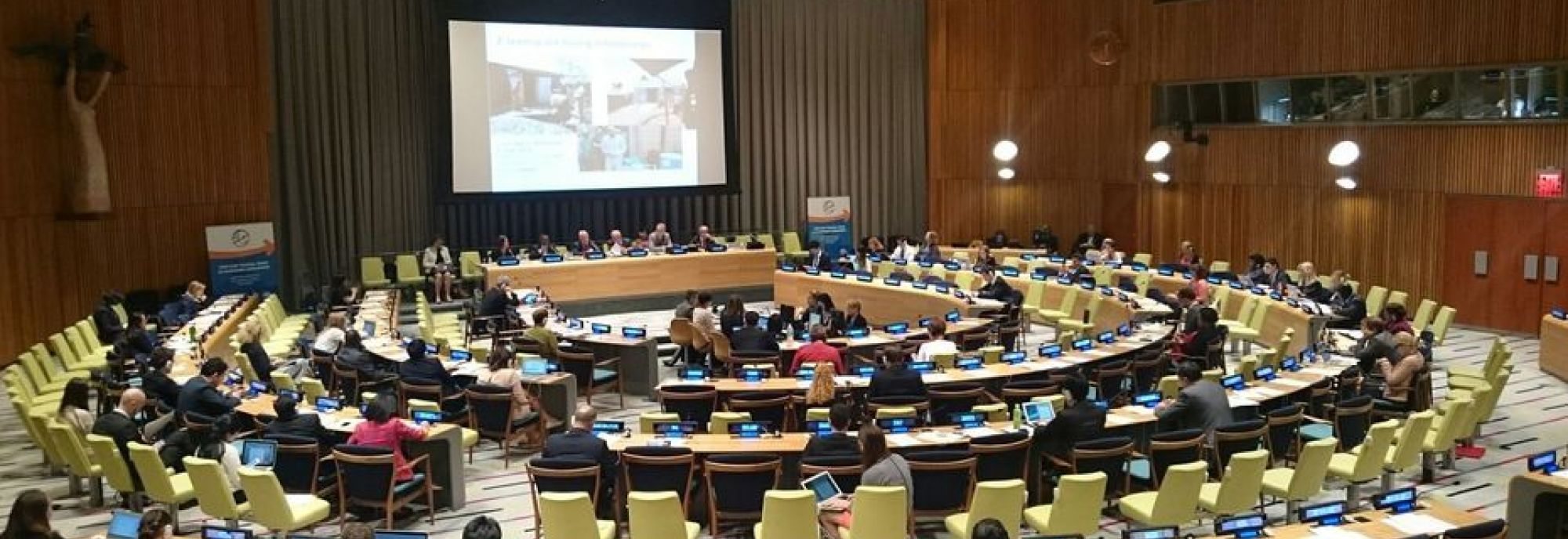
Al-Haq and Al Mezan participated in the side event “Addressing Food Security and Nutrition in Protracted Crises,” where they detailed case studies from the Occupied Palestinian Territory (OPT), reflecting the Framework for Action for Food Security and Nutrition in Protracted Crises.
Al-Haq’s presentation focused on Principle 9 of the Principles for Action for Improving Food Security and Nutrition in Protracted Crises. Principle 9 underscores the need to “respect the existing rights under international law of members of affected and at risk populations, and their ability to access and use their natural resources.”Al-Haq highlighted the case of Al-Jiftlik. While the village, due to its location in the Jordan Valley, should have a thriving agricultural sector, it instead is obstructed by Israel’s policies. Farmers there are unable to maximize agricultural production due to limitations on access to water and development of related infrastructure on their land. This includes having water pipes and rainwater collection pools demolished by the Israeli Civil Administration.
Al-Jiftlik is representative of villages across the OPT, where Palestinians cannot use their land, water, and other natural resources for their own benefit. The Jordan Valley, an area that was known as Palestine’s breadbasket, is now instead the heart of Israel’s agricultural settlements. Al-Haq stressed that Palestinians must be able to realize their right to full sovereignty over their natural resources, and thereby be able to fully and independently define their own policies in relation to food production. This can only occur once the root cause of food insecurity- the occupation- is addressed.
Al Mezan cited the closure/blockade of Gaza, frequent Israeli military assaults, and complete impunity of Israeli forces and authorities as the three mechanisms that maintain the manmade, protracted humanitarian crisis in the Gaza Strip. The de-development of Gaza through these mechanisms has led directly to food insecurity, to the undermining of local capacities, and ultimately to the destruction of livelihoods and food systems.
The almost 50 years of Israeli occupation, fragmentation and control has never allowed the Palestinian economy and basic services to reach their full potential. Currently, approximately 80% of Gaza’s population relies on and receives some form of international aid, the bulk of which is food assistance; however, nearly 40% of the same group still fall below the poverty line, hindered from realizing the right to continuous improvement of living conditions.
In line with the Framework, Al Mezan advocated for stakeholders to address the root causes of food insecurity and under-nourishment in Gaza pursuant to a rights-based approach. Palestinians must be enabled to access their fundamental right to food while realizing all other basic and inalienable human rights, including self-determination.
Accordingly, maintaining the occupation and therefore dependence on international aid while using the OPT as a captive market for Israeli goods is not a solution. Al-Haq and Al Mezan underscore that Palestinian food sovereignty is crucial- this can only come through ending the occupation.
